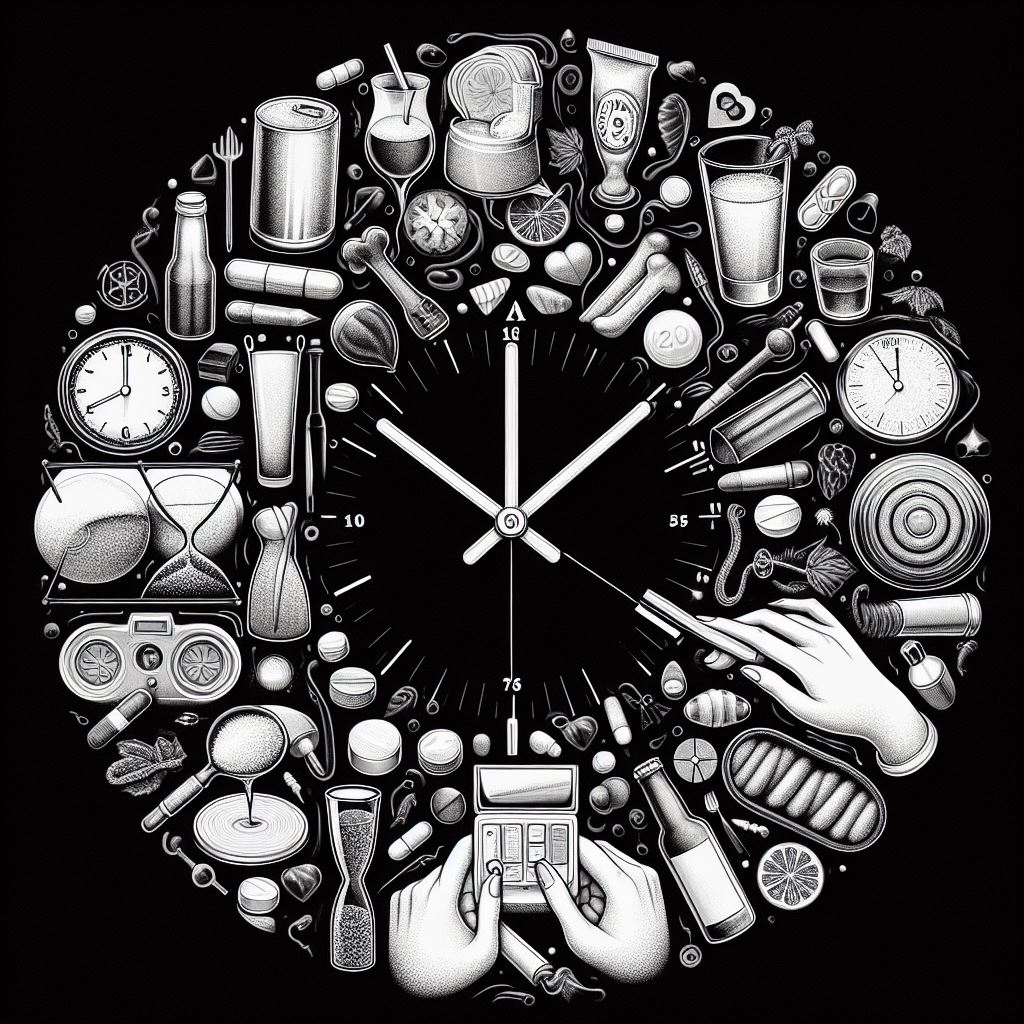Ever wondered how long that drink or dose will take to wear off? The short answer is the is no fixed timeframes. Excessive users have been known to hold the content within their significant for extended longer periods where some with faster metabolism and first time users seeing a quicker timeframe. While the precise answer depends on individual factors, understanding how long drugs and alcohol stay in your system is crucial for informed decision-making. This article delves into the key influences on a substance’s time in your body, explores timeframes for common substances, and clarifies the distinction between “sober” and the effects wearing off.
The Intricacies of Leaving Your System
The human body is a complex detoxification machine, constantly working to process and eliminate unwanted substances. Several factors influence how quickly this process occurs, including:
- Substance Type: Different drugs and alcohol have varying chemical structures, impacting how the body metabolizes and removes them.
- Dosage: The amount of a substance consumed directly affects how long it takes the body to process it. Higher doses take longer.
- Body Composition: Factors like weight, body fat percentage, and metabolic rate play a role. Generally, individuals with lower body fat and faster metabolisms process substances quicker.
- Liver and Kidney Function: These organs are primarily responsible for detoxification. Impaired function can significantly slow the process.
- Food and Hydration: Eating food can slow down the absorption of some substances, while adequate hydration can aid in removal.
Understanding Sobriety vs. Feeling the Effects
It’s important to distinguish between a substance leaving your body and being truly “sober.” Feeling the effects refers to the presence of psychoactive effects on your body and mind. Even after a substance is no longer detectable, its effects can linger, impacting cognitive and motor skills.
Timeframes for Common Substances:
(None of the following timeframes are specific in any way, the following is a guide and not to be taken as fact. )
Alcohol: The liver metabolizes alcohol at a relatively constant rate of approximately one standard drink (14 grams of pure alcohol) per hour [1]. This means it takes roughly an hour for your body to process the alcohol from one drink and stop feeling its effects. However, factors like those mentioned above can significantly alter this timeframe.
Cannabis (THC): THC, the psychoactive compound in marijuana, can be detected in a person’s system for days or even weeks depending on usage patterns [2]. Occasional users may exhibit traces for a few days, while chronic users may experience effects for weeks.
Cocaine: Cocaine leaves the body relatively quickly, typically within 24-48 hours for occasional users [3]. However, heavy cocaine use can lead to longer periods where effects are felt.
Opiates: Opiates like heroin and prescription pain medications can be detectable for 2-4 days [4]. However, the specific opiate and the presence of adulterants can influence how long effects are felt.
These are just a few examples, and timeframes can vary considerably. It’s crucial to consult reliable sources for specific information.
References:
- [1] National Institute on Alcohol Abuse and Alcoholism: https://www.niaaa.nih.gov/
- [2] National Institute on Drug Abuse: https://americanaddictioncenters.org/marijuana-rehab/how-long-system-body
- [3] National Institute on Drug Abuse: https://www.samhsa.gov/find-help/national-helpline
- [4] National Institute on Drug Abuse: https://www.samhsa.gov/find-help/national-helpline
Beyond Feeling the Effects: Recovery Takes Time
Remember, feeling the effects wear off is just the first step. Recovery from addiction is a complex journey that requires ongoing support and treatment. If you or someone you know is struggling with substance abuse, please seek help from qualified professionals. Here are some valuable resources:
- National Drug Helpline: 1-844-289-0879
- Substance Abuse and Mental Health Services Administration (SAMHSA): https://www.samhsa.gov/
The best way is to avoid all this and start a journey to sobriety with Sober Standard!
Disclaimer: This article is for informational purposes only and should not be interpreted as medical advice. Always consult with a healthcare professional for personalized guidance. The timeframes and information are guides and not actual factual information.
